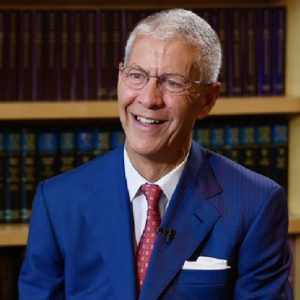San Francisco’s DA was recalled by the voters. Philadelphia’s DA was impeached by Pennsylvania’s General Assembly. Last month, newly elected Los Angeles mayor Karen Bass declared a state of emergency over homelessness, where roughly 10% of our nation’s unhoused live. But even mild efforts at structural reform of homelessness and mental health treatment in New York and San Francisco are met by lawsuits and an injunction.
As the new year dawns, many of us who live or work in a big city are looking for just a scrap of progress. But for those yearning for more radical change — a year 2050 real life utopia — check out Singapore, as our family did for a week in December.
Name a big city problem and you won’t find much of it in Singapore.
Drug dealing? Largely wiped out, due to ruthless official intolerance. Possession of more than a half ounce of heroin is punishable by death. While this remedy is rarely exercised, its prospect has had the intended deterrent effect. This policy is supported by the overwhelming majority of the public — as I was told by one citizen: “I don’t sell drugs and so I don’t care about what happens to those who do.”
Homelessness? Nearly non-existent. Thanks to the trifecta of no significant drug problem, wrap-around and individualized social and mental health services and housing built and highly subsidized by the government, nearly no one sleeps on the street.
Unemployment? Very low. Nearly everyone in Singapore who can work outside the home has a job. Work most Singaporeans don’t want to do — such as construction — are undertaken by highly regulated South Asian labor.
Health care? Widely available, thanks to a requirement that workers place a portion of their income in medical savings accounts. Since nearly everyone who can work does work, these accounts adequately support the vaunted Singapore health care system. Those who are not employed enjoy significant government subsidy and a tradition of intra-family support.
Crime? From petty offenses to violent crime, Singapore enjoys one of the lowest crime rates in the world. This nation of 5.5 million urban dwellers has fewer than 5 gun deaths per year. The gun death rate in Philadelphia is roughly 4000% higher than Singapore’s.
Grime and litter? Singapore’s streets and sidewalks are as immaculate as Disneyland’s gleam. The subway system is magnificent. Even the walls of traffic tunnels are regularly hosed down. E-cigarettes are illegal. The myriad of no tobacco smoking zones and huge fines for littering means that few smoke in public, except in the casinos.
Vacant buildings and store fronts? Nope. While there are many cultures and religions in Singapore, capitalism is the common creed. Seemingly every stall in the Arab market and Chinatown is occupied and brimming with wares. Shopping is so shockingly dominant that it must be seen to be believed — but just consider that there are 18 Rolex, 7 Ralph Lauren and 5 Tiffany stores, way more than in any Western city.
Is there serious stuff not to like? Plenty. Gays can’t marry. The time, place and manner of political protest is constricted to one location during very limited hours and then only with a license. While Singapore is democratic, the will of the people has an authoritarian tinge.
There’s also annoying little stuff. You can’t buy chewing gum. Jaywalking is punished by a fine and blocked by ugly fencing that lines the curbs of busy streets Liquor can’t be purchased in stores after 10:30pm or consumed in public, though western-style hotels and clubs are excluded from this prohibition. Pedestrians must give way to motorists, which is a rude form of Darwinism.
But there are cracks in the intolerance too, as sodomy is no longer illegal, pro-marriage housing regulations have loosened a bit — and you can now buy chewing gum with a doctor’s note.
Obviously, America’s cites aren’t going to be alchemically transformed into Singapore. But Singapore was once a mess too. In the 1960s there was a housing crisis with unsafe squatter settlements, leading to a huge fire that left 16,000 homeless. There was high unemployment and violent crime and awful health care. Singapore had the political will to reform, aided by two-year mandatory service in the military or police, which has helped solidify the nation.
Today, Singapore is governed through a communitarian majority that deeply approves of the extraordinary results, though a relative few feel constricted. America’s big cities are ungovernable through a constitutional Catch-22, where the freedoms to possess guns, pitch tents on the sidewalk, and avoid mental health treatment have made everyone unsafe and nearly no one satisfied. Singapore prospers while America’s cities whither.
Until we demonstrate the determination to reform — through peaceful protest in our streets, at the ballot box and with our wallets — we will remain in a destructive cycle. Singapore did it. We can too.
_______________________________________________________________________________________________________________
 Shanin Specter
Shanin Specter
Shanin Specter is a founding partner of Kline & Specter and a law professor. He may be reached at [email protected].



 Shanin Specter
Shanin Specter


